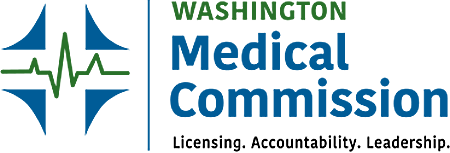Assessing Risk for Hereditary Cancer: Importance of Family History Cancer Genetics Part 1 of 5
This learning series is accredited for AMA PRA Category 1 Credit™ from April 15, 2025 until April 15, 2027.
Watch the recording and complete your evaluation here.
In this webinar, you will hear from genetic counselors and one patient advocate who will provide a comprehensive overview of the most common hereditary cancer syndromes, advancements in the field, and the importance of risk assessments. The group highlights the common misconceptions regarding risk assessments, outlines the impact of missed opportunities assessing personal and family history risk assessment, and offers tools for you to use in your practice. This series aims to aid non-genetic providers in better applying these genetic risk assessments and addresses the unique challenges faced by this population.
Educational Objectives
Upon completion of this educational activity, participants should be able to:
- Describe common hereditary cancer syndromes and their features.
- Recognize advancements in cancer gene identification.
- Identify current guidelines for hereditary cancer risk assessment.
- Recognize important indicators in family history as related to hereditary cancer risk.
- Assess appropriate tools that may be used for hereditary cancer risk assessment.
Target Audience
This activity is designed to educate medical practitioners on aspects of cancer genomics with respect to their practice.
Speakers
 |
Terah AA Hansen, MS, CGC |
| Reena Dhaliwal, MS, CGC Reena is a Genetic Counselor at the Providence Genetics Clinic in Spokane, WA where she splits her time between general pediatrics, adult oncology, and pediatric oncology. She is originally from British Columbia, Canada and has been living in Spokane for the past four years. In her spare time, Reena is an avid runner and reader. |
|
| Julie Simmons, MS, LCGC Julie Simon earned a Bachelor of Arts in Biology from the University of San Diego in 2007, and a Masters in Genetic Counseling from the University of California, Irvine in 2010. After graduation, she created the Lysosomal Storage Disorders Program at UCI and worked with graduate students before moving to the beautiful Pacific Northwest. She worked first at MultiCare for 6 years expanding their genetics services in oncology, metabolic, and general genetics. Since joining Genetic Support Foundation, she continues to meet with people to discuss cancer genetics, general genetics, and personalized medicine. In her free time, she enjoys reading, hiking, and playing with her two corgis. |
|
| Janet Shimabukuro Janet Shimabukuro is a four-year cancer survivor who discovered her BRCA2 mutation after a breast cancer diagnosis when she was 46 years old. She feels blessed to be the reason several members of her large extended family now know about their increased cancer risk. Janet went through a 6-month TCHP regimen, bilateral mastectomy, reconstruction, and preventative hysterectomy in 2020. She is a thriving wife, mother, and now grandmother who lives on a piece of her family’s multi-generation farm in Olympia, Washington. |
|
|
Katie Stoll, MS, CGC |
|
| Madilyn Head, MS, LCGC – Moderator Madilyn Head, MS, CGC is a licensed research genetic counselor at the University of Washington eMERGE IV study. Madilyn is also a Warren Alpert Fellow at the Washington State Department of Health. Her research interests broadly focus on integrating more genetic services and counseling in the primary care setting. She earned her Master’s of Science degree in Genetic Counseling from the University of Washington in 2023. |
Credit Designation Statement
The Federation of State Medical Boards designates this enduring activity for a maximum of 1.0 AMA PRA Category 1 Credit™. Physicians should claim only the credit commensurate with the extent of their participation in the activity.
Course Director
Pamela Kohlmeier MD, JD, FACEP
Washington Medical Commission
Commercial Support
This learning activity is not funded by any commercial entity.
Disclosure Declaration
As an organization accredited by the ACCME, the Federation of State Medical Boards (FSMB) requires that the content of CME activities and related materials provide balance, independence, objectivity, and scientific rigor. All faculty, planners, and others in a position to control continuing medical education content participating in an accredited continuing education activity are required to disclose all financial relationships with ineligible companies. Ineligible companies are organizations whose primary business is producing, marketing, selling, re-selling, or distributing healthcare products used by or on patients. Faculty (authors, presenters, speakers and planners) are encouraged to provide a balanced view of therapeutic options by utilizing either generic names or other options available when utilizing trade names to ensure impartiality.
Faculty members are asked to disclose all financial relationships they have had in the past 24 months with ineligible companies regardless of the potential relevance of each relationship to the education and of the amount. The FSMB has implemented a mechanism to identify and resolve all conflicts of interest prior to the activity. The intent of this policy is to identify potential conflicts of interest so participants can form their own judgments with full disclosure of the facts. Participants will be asked to evaluate whether the speaker’s outside interests reflect a possible bias in the planning or presentation of the activity.
None of the speakers or planners for this activity have relevant financial relationships to disclose with ineligible companies.
Disclosure of Unlabeled Uses
This educational activity may contain discussion of published and/or investigational uses of agents that are not approved by the U.S. Food and Drug Administration. For additional information about approved uses, including approved indications, contraindications, and warnings, please refer to the prescribing information for each product, or consult the Physicians’ Desk Reference.
Faculty and Staff Disclosures
No speaker or persons in control of content reported intent to reference unlabeled/unapproved uses of drugs or products.



